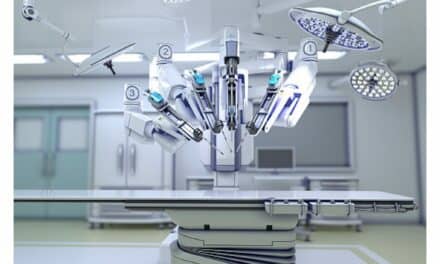Artificial intelligence (AI) is a popular topic in companies’ filings these days, and the medical industry is among the top five industries mentioning AI the most in Q1 2023, mostly regarding diagnostic tools, reveals GlobalData.
An analysis of GlobalData’s Company Filings Analytics Database reveals that these recent filings primarily included discussions about cancer detection, AI imaging, and implementation processes. Companies have been exploring collaboration and venturing into different markets with AI-generated diagnostic tools.
“AI is rapidly becoming a mainstream technology,” says Misa Singh, business fundamentals analyst at GlobalData. “There is no doubt that the use of AI in medical devices is expanding, as well as the opportunities for manufacturing medical equipment and gadgets to develop new diagnostic tools. It can also be used to capture and assess data more efficiently, which professionals can use to make better decisions. This technology has the potential to be used in a variety of fields.”
iCAD Inc and Google Health have entered into a commercial partnership to introduce their breast imaging AI technology into clinical practice. This partnership will help iCAD Inc to expand into new markets and reach more patients. Veracyte Inc created the Afirma Genomic Sequencing Classifier (GSC) to determine if patients’ thyroid nodules are benign so they can avoid invasive surgeries. This tool uses RNA whole-transcriptome sequencing and machine learning technologies.
For cancer detection, RadNet Inc introduced its DeepHealth AI-powered Enhanced Breast Cancer Detection service in February 2023. This service offers customers advanced screening mammography, a lifetime risk assessment for breast cancer, and post-mammogram assistance. Renalytix AI Plc platform KidneyIntelX combines predictive blood biomarkers with important data from a patient’s medical history to produce an early and precise kidney health risk assessment.s
“The medical industry may undoubtedly benefit from AI. However, it still needs human surveillance to work effortlessly,” says Singh. “Despite the challenges, it will be worth witnessing the growth of AI and how it advances the lives of patients and physicians.”





